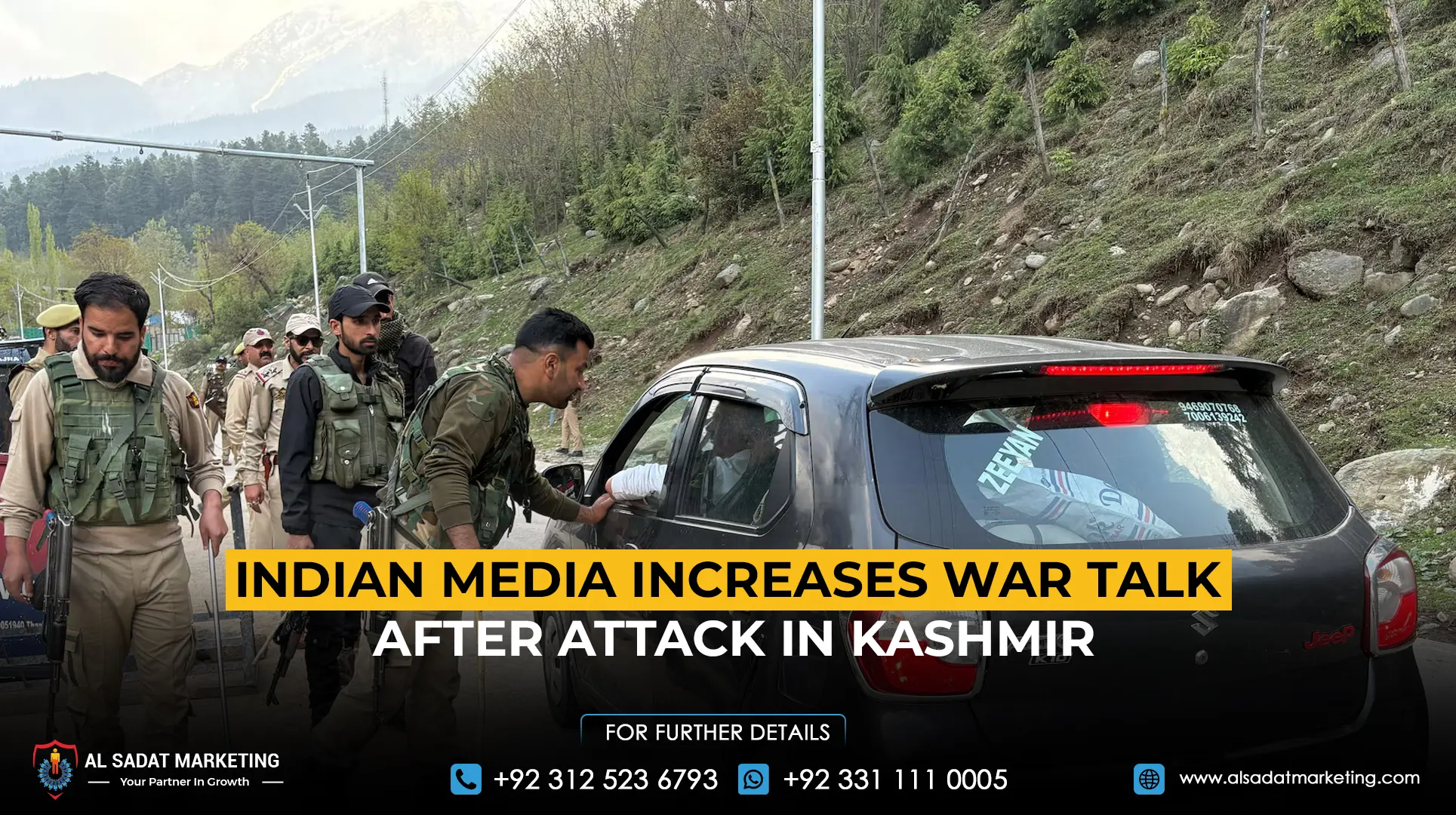Indian-occupied Kashmir witnessed a tragic incident where 26 tourists lost their lives, intensifying tensions in the already volatile region. In the aftermath, Indian mainstream media has come under heavy criticism for promoting aggressive narratives rather than focusing on verified facts.
Leading Indian news channels such as Times Now, India Today, and Zee News have dedicated extensive airtime to discussions filled with war-mongering rhetoric. These programs have consistently blamed Pakistan for the attack, despite the absence of concrete evidence. The coverage has included calls for military retaliation, with anchors and panelists, often perceived as aligned with Prime Minister Narendra Modi’s government, urging cross-border action. Some media personalities have even compared the attack to “India’s 9/11”, intensifying public emotions and nationalistic fervor.
Prominent TV hosts like Arnab Goswami have amplified these sentiments with provocative headlines such as “India Under Attack: Time to Respond” and “Pakistan Must Pay Price”. Phrases like “The country must retaliate, and retaliation must be harsh” have dominated both television and digital media platforms. This surge in aggressive commentary has led to growing concern over the impact such narratives may have on diplomatic relations and regional stability.
Also Read: Top 5 Skills Every Young Entrepreneur Should Develop
Adding to the tension, retired military officials have appeared on various media outlets advocating for an open military response. Statements such as “give the army a free hand” and “total military response” have fueled public demand for immediate action, further escalating the situation.
Despite these intense media campaigns, Indian authorities have yet to provide verifiable proof of Pakistan’s involvement in the attack. Both India and Pakistan have refrained from making formal statements assigning blame or outlining a definitive course of action. As the region awaits official responses, the international community watches closely, concerned about the potential for further escalation between the nuclear-armed neighbors.










